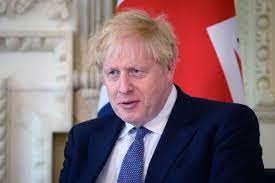The UK’s inflation rate hit another 40-year high in May, reaching 9.1 per cent, its highest level since 1982.
Fuelled by higher food prices last month, the rise from the 9 per cent rate in April was in line with economists’ expectations that inflation will hit double digits by the autumn.
The Bank of England expects the inflation rate to exceed 11 per cent in October, significantly higher than other similar countries in the G7.
The rise in inflation will add to cost of living pressure on households, intensify demands for wage rises to offset higher prices and make it more difficult to resolve industrial disputes such as this week’s rail strike.
Prices rose at high rates across a broad group of categories. For a quarter of all individual items measured by the Office for National Statistics, prices were 10 per cent higher than last May, and for half of the categories measured, they rose by 7 per cent or more.
The biggest contributor to the increase in inflation came from food prices, which increased 1.5 per cent in May, with bread, cereals and meat rising fastest.
The Office for National Statistics said that road fuel prices were 32.8 per cent higher in May than a year earlier, the largest annual jump in prices in the category since detailed indices were first compiled in 1989.
Next month, the inflation rate is likely to rise strongly again, the Resolution Foundation said, because it would take into account the recent rise in fuel prices at the pumps. In May, the average price of a litre of petrol was recorded at £1.66 (€1.93) and has risen about 20p a litre since then.
Yael Selfin, chief UK economist at KPMG, said there were “no signs yet of inflation receding” and that while the largest increases were in energy and road fuels, “price rises spread widely across the economy”.



